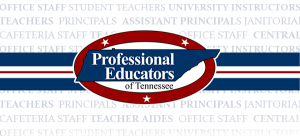Law enforcement and schools form a partnership that can significantly benefit both institutions and contribute to building trust and cooperation within the community. If schools have law enforcement on site, it is crucial to carefully select school resource officers (SROs) and ensure they are well-prepared for their role. SROs should be fully integrated into the school culture as educational team members, similar to other staff members.
The responsibilities of SROs should be driven by the social-emotional needs of students, focusing on supporting their development of problem-solving, decision-making, goal-setting, resilience, and emotional regulation skills. SROs should engage with students, affirm them, and act as teachers and guides rather than in a disciplinary capacity. Their law enforcement training uniquely prepares them to plan for and maintain student safety in the face of external threats. An effective SRO recognizes that the best way to protect students is by empowering them to assess and manage their safety.
One key aspect of establishing a successful SRO program is clearly defining the role of the SRO in a contract between the school and the law enforcement agency. This ensures that everyone understands the officer's training and expected duties within the school. The SRO's role includes being a teacher, mentor/guide, and law enforcement officer. While the law enforcement aspect is well-known, it is essential to communicate how it will be applied on the school campus and distinguish between enforcing laws and enforcing school rules in a disciplinary role.
A well-implemented SRO program holds immense potential to foster positive relationships between law enforcement and young people, families, and school personnel. Regular, supportive interactions between students and SROs can build trust and facilitate the sharing of essential information for maintaining health, safety, and security, instilling a sense of optimism and hope in the potential of this partnership.
To ensure the successful integration of SROs into the educational team, they should be included in various school activities and events, such as staff assemblies, team-building activities, and meetings. They should also participate in in-service training and professional development alongside other school personnel. Conferencing may also be appropriate when including the SRO in the Individualized Education Program/Behavior Intervention Plan.
Recruiting and selecting qualified SRO candidates who align with the school culture and climate is crucial. A rigorous process should be in place to ensure that the chosen SROs are well-suited for the specific role defined by the school community.
Comprehensive and continual training is not just beneficial but essential for SROs. They should receive robust and ongoing training that not only prepares them to meet the expectations of their school community but also reassures the audience about their competence and preparedness. This includes learning about child development, specialized training in educating students with disabilities, classroom management skills, positive behavioral intervention, conflict de-escalation, restorative practices, and culturally responsive education. SRO training should also cover student rights and the responsibilities of educational institutions.
SROs should have the same onboarding and professional development opportunities as other school personnel to familiarize themselves with the school's policies, procedures, and approaches to promoting safe and pro-social behavior. Additionally, they should develop specific areas of expertise that can benefit the school community, such as health promotion and prevention science. We must continuously equip SROs with the necessary skills and materials to address the community's unique needs.
While law enforcement officers possess crisis response expertise and can provide leadership in times of crisis, their success as SROs relies on their complete integration as educational team members. By participating in all aspects of school life, SROs can effectively contribute to the safety and well-being of students and the school community.
##
JC Bowman is the executive director of Professional Educators of Tennessee.
Kaylee Joselyn is the director of membership of Professional Educators of Tennessee.











